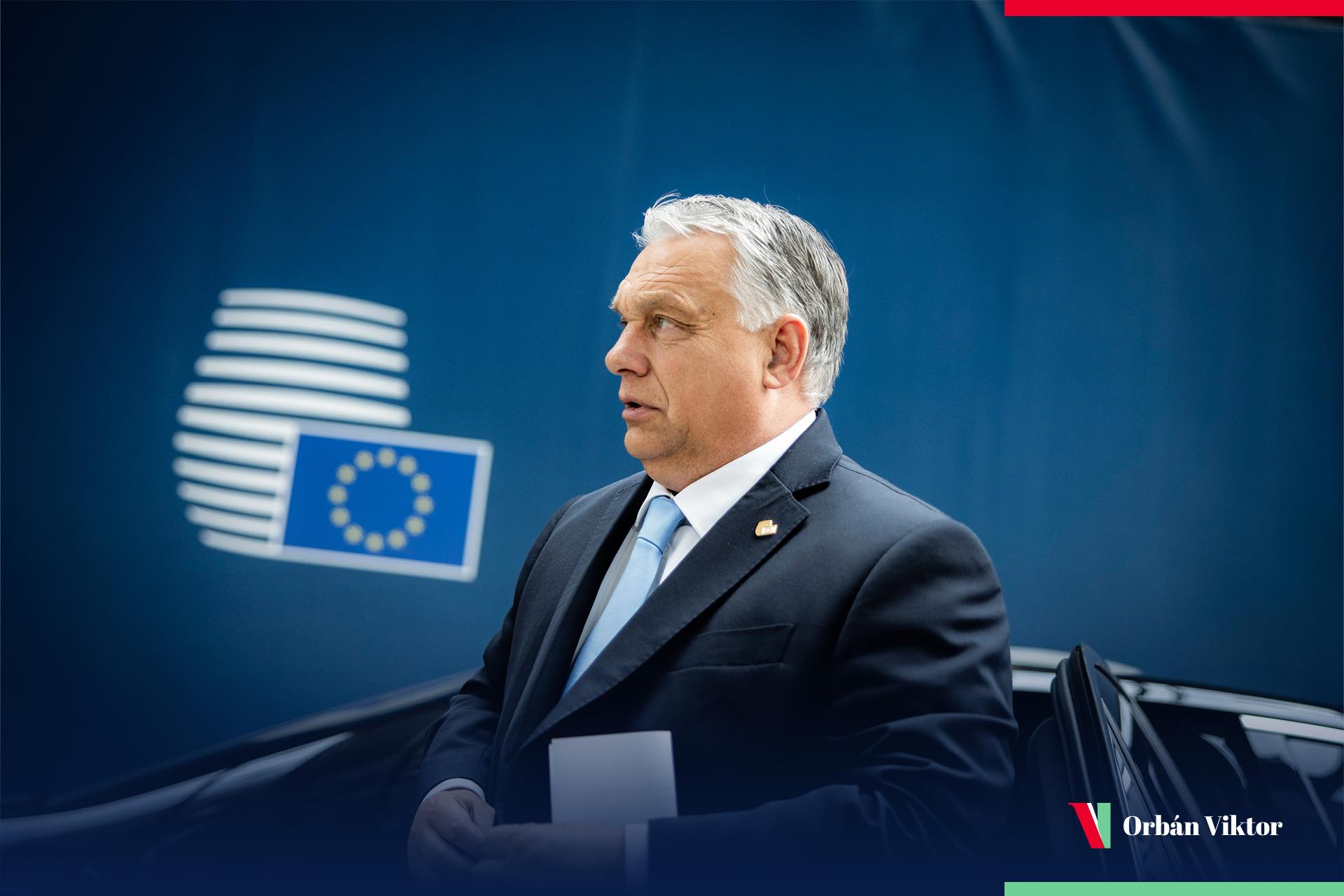PM Orbán about the US-EU trade deal: Trump ate Ursula von der Leyen for breakfast

Prime Minister Viktor Orbán said “the earliest possible date should be expected concerning next year’s election” in the Fight Hour online programme on Monday.
Earliest possible date
Under the constitution, the elections should be held in April or May “in line with a decision by the president of the republic”, Orban said, adding that “nobody can strip the president of that right or restrict that right but we must also make preparations.”
Political parties are getting ready “to be in full armour by the earliest date” Orban said. He said that next year offers the second weekend of April as the earliest date, but suggested that the president would make the final decision.
Meanwhile, Orbán said his Fidesz party had selected the election candidates for all 106 constituencies with the exception of 3 or 4.
- Orbán’s Tusványos speech full of omissions, distortions, errors – read what the critics said
The broadcast dubbed Fight Hour has been launched on Orbán’s proposal, and its goal is to stop “the spreading of fake news as early as possible” and to discuss important current issues.

EU-US trade deal
Commenting the EU-US trade deal he said that based on the information available so far, it was not an agreement but US President Donald Trump had “eaten the European Commission President Ursula von del Leyen for breakfast”.
Orbán said that he had expected this outcome in advance, considering that the US President was “heavy weight” as against the EC President being “light weight”. The US President’s position was much more confident while the EC President’s position was always more fragile, he added.
The US has recently struck a similar deal with the UK which was “much better than this”, Orbán said. He added since the European deal was “much worse” than the UK deal, it would be difficult to present it in the future as a success.
- PM Orbán at Tusványos: We would secure landslide victory in a snap election
Who will invest EUR billions in the USA?
Orbán said the problem was that in line with the agreement, Europeans would invest several hundred million euros in the US. “But who will?”, Orbán asked, adding that the EC had no capital to invest. “In whose name did she agree? Will the German Chancellor take the money there, the French President, or the Hungarian PM will send the capital?”, he asked.
He said that “we are supposedly going to buy weapons, to a value of several hundred billion euros”. “But who will? The Commission has no army,” Orbán added.
Orbán said their positions had not been equally firm, the EC president had been in a difficult position.
Orbán continues to fight
He said the Fight Club already had 30,000 members, and 40,000 people had joined the digital civic circles.
He added previously, for 15-20 years, it used to be a “normal civic political practice” that they had “not reacted to blatant lies in order not to amplify the voice of falsehood”. “However, since the digital world has overtaken politics, people are willing to give credit to the the most absurd things, so unless an immediate reaction is given, lies will overtake the internet,” Orbán said.
The internet was a ‘hostile space for a non-liberal, non-leftist’, which he said called for the establishment of digital civic circles.
Orbán said cyberspace was “a crucial part of life” which “we must enter, and I call it a digital conquest of the homeland.” “Civic, patriotic, peaceful … well-wishing people must also have room in that space and it is important that they can protect themselves against the internet aggression,” Orbán said.
Digital civic circles
According to the prime minister, over 600 people have volunteered to organise digital civic circles, including one in Budapest that would redesign the city because “the capital is stuck in petty disputes and it has no large-scale plans.” He said the civic circles would attract “patriotic people for whom the homeland is crucial, who want to develop rather than demolish, and will work for the homeland’s future.”
Concerning his recent journey to the Bálványos Summer University in central Romania, Orbán said he had used an aircraft of the Hungarian military because it was an official visit. He added that he always used scheduled flights for private purposes, even no-frills services, when needed.
The prime minister dismissed allegations that the “the government would use force to stay in power should the ruling parties not win next year’s election” as “rubbish.” He said the subject had surfaced before each election, but added that he was “the only Hungarian politician that has both won and lost elections”.
Responding to footage presented in the programme, recorded during a concert in which the audience chanted anti-Fidesz slogans, the prime minister said “it was not convincing”. He also said he encouraged drone surveillance of opposition rallies “because that reveals that the opposition’s claim of a huge flow of a crowd was in fact small groups … but when you take pictures from the ground it looks good”.
Hired people in the Tisza party
Concerning a question concerning why he would not have a public discussion with opposition Tisza leader Peter Magyar, Orbán repeated his earlier position that he would not have a debate with “hired people”. He said he would not attend programmes financed from abroad. “I am in a dispute with (Magyar’s) masters, the puppet master that activates him, von der Leyen, Mr Weber, and a number of European bureaucrats, each week,” he said.
Meanwhile, Orbán said he would take his holidays in the second half of August, when “Brussels bureaucrats go on holiday and hopefully the pressure and heat in politics will ease”.
Responding to a question concerning public opinion surveys, Orbán said “a vulnerable Hungarian would think that the polls reflect the situation at the given moment … but they are mistaken, because a large part of the polls are a tool to support political campaigns”. In the West, he said, “if a party finances the pollster, they will not be shy to interpret the figures in a way that it benefits one side,” he said. Orbán said he did not think their own polls were flawless, but added that “we think that it is the actual situation” referring to his recent remarks that Fidesz would win 80 constituencies out of 106, if elections were held now.
EU migration pact
On another subject, Orbán said the opposition Tisza Party approved of the European Union’s Migration Pact, which would mean that “Brussels decides who can enter Hungary”. Orbán recalled Tisza leader Peter Magyar “sitting in the front line clapping … in support of the Hungarian way” during the prime minister’s public appearances only about a year and a half ago, and now, leading an opposition party “he advocates a different path”.
Orbán insisted that these days a prerequisite for “an European politician striving for compromise with the European Commission” was to adopt the Migration Pact. “This is what Tisza says but you need a good ear to understand,” the prime minister said.
Implementing the Migration Pact would mean “building a refugee camp for tens of thousands”, he said, adding that “Hungary has been imposed that obligation but the country does not comply”. The Pact would also involve “accepting that if many migrants arrive in Europe, Brussels would decide how many should come to Hungary.”
End of Hungary
“The Migration Pact would mean the end for Hungary,” Orbán said, adding that an agreement with Brussels was necessary but it should be negotiated “without giving up the national interest”.
Referring to migration and France’s possible recognition of an independent Palestine, Orbán said “one dimension of migration is terror and crime”, while it also has “an impact on democracy.” He said that if the ratio of Muslim voters increases compared with the number of Jewish voters “their government will pursue a pro-Palestinian and pro-Islam policy”. “That will be the result; this is democracy and then the Jews will be forced to leave,” he said, and insisted that it had already happened in a number of Western European countries.
Orbán said the two-state plan was an “illusion”, adding that keeping that on the agenda could hinder the agreements that could otherwise be achieved. An independent Palestinian state would be feasible “if both parties accepted each other, but it is not like that: Israel does not strive for a two-state solution.”
Click for more Viktor Orbán news.







